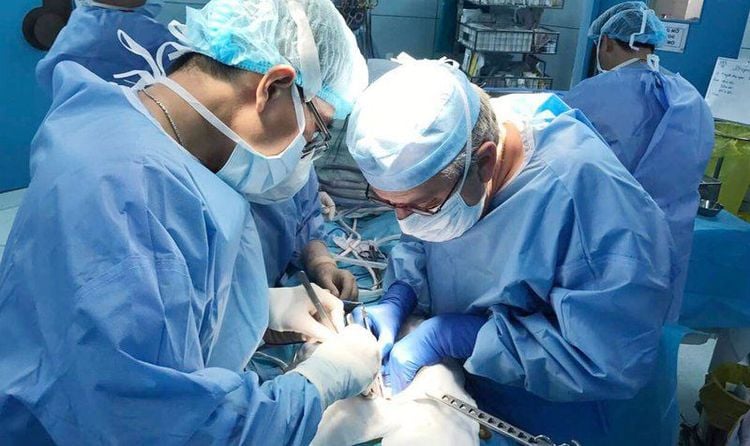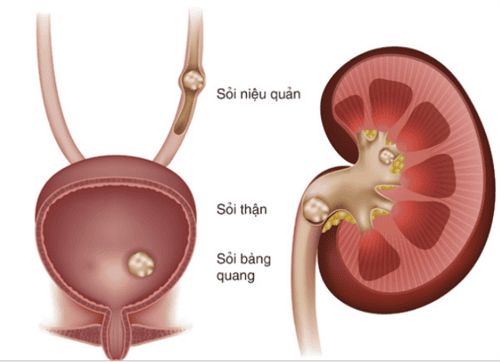This is an automatically translated article.
Urethral stone surgery is the method applied when the stone is too large. The technique of ureteral stone surgery must be performed by a team of good doctors with modern equipment, to avoid causing complications after surgery for ureteral stones, which are dangerous to the patient's health. Ureteral stones are one of the most common urinary tract stones. The cause of ureteral stones is mainly due to stones passing from above the kidney. Based on the location of the stone, ureteral stones are divided into 3 types, which are 1⁄3 upper, 1⁄3 middle and 1⁄3 lower ureteral stones. This breakdown helps to select the appropriate treatment.1. How dangerous are ureteral stones without treatment?
The ureteral stone is small but has sharp spikes, when the stone moves, it will rub and collide with the urinary tract, creating pain in the back, blood in the urine, painful urination and burning. In the worst case, the stone can get stuck in the calyx stalk, block the renal tubule, and gradually cause the kidney to dilate, causing cramping pain.When the stone is too large, if not treated, ureteral stone surgery will cause the stone to rub against the urinary tract, causing the urinary tract to become inflamed and edematous, leading to urinary tract infection. Infection is one of the possible causes of kidney failure, kidney rupture, bladder rupture, urinary tract necrosis.
2. Method of surgery for ureteral stones
Laparoscopic ureterectomy is a minimally invasive treatment for stone removal. The goal of this surgical approach is to remove the cause of ureteral obstruction due to stones, or inflammation around the ureter caused by stones, and restore the function of the urinary tract to preserve function. renal function and for the prophylaxis of possible complications of ureteral obstruction due to stones.Laparoscopic surgery for ureteral stone surgery is highly appreciated because the postoperative pain is less, the recovery time is fast and the patient does not have to stay in the hospital for a long time. Based on the specific condition of the patient, the doctor may appoint laparoscopic surgery to remove the ureteral stone through the abdomen or the retroperitoneal space.

Phẫu thuật nội soi mổ sỏi niệu quản
3. Complications after surgery for ureteral stones may be encountered
Some complications after surgery for ureteral stones that may need to be noted are:The patient has a subcutaneous emphysema, causing pain in the incision and pain in the chest and abdomen after surgery for ureteral stones; Urinary tract infections require high-dose antibiotic treatment. In order to minimize the occurrence of complications after surgery for ureteral stones, patients need to choose surgery at reputable large hospitals, with a team of good doctors and modern equipment for effective treatment. Optimal.
Please dial HOTLINE for more information or register for an appointment HERE. Download MyVinmec app to make appointments faster and to manage your bookings easily.













